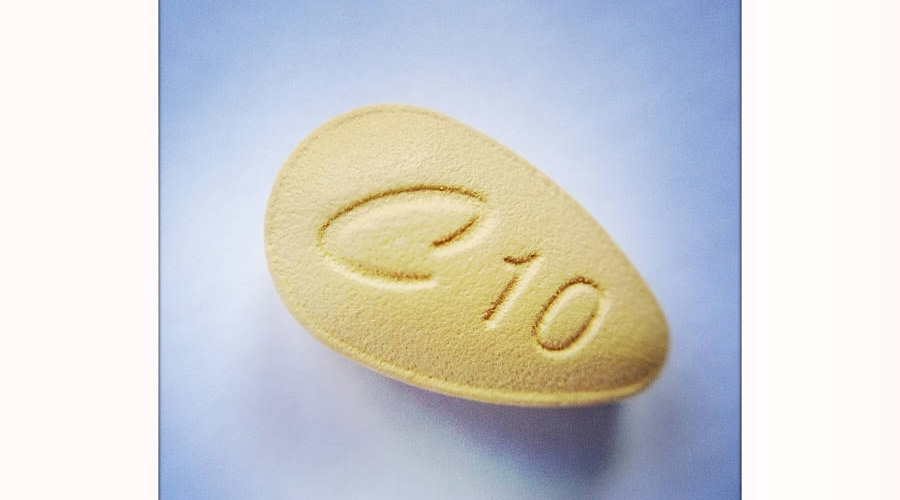Cialis is a medication used to treat erectile dysfunction (ED) in men. It is available as a pill, an injection, and a topical cream. The pill form is usually taken once daily. The injection form is given by a doctor in a clinic setting and the topical cream form can be applied to the penis in order to improve blood flow. Cialis can also be used for other medical conditions, such as anxiety and depression.
Contents
Erectile dysfunction

Erectile dysfunction is a condition that affects many men and can cause them to feel embarrassed or ashamed. However, it is important to remember that you are not alone and that there are treatments available. ED can be caused by a number of factors, including age, health conditions, lifestyle choices, and medications.
If you are experiencing symptoms of ED, it is important to see your doctor right away. He or she will be able to determine the cause of your problem and recommend the best treatment for you. There are a number of different treatments available for ED, including oral medications, injections, and penile implants.
It is important to remember that ED is a treatable condition and that you do not have to suffer in silence. There are many different treatments available that can help you regain your confidence and enjoy a healthy sex life again.
Erectile dysfunction causes
Erectile dysfunction (ED) is defined as the inability to get and keep an erection firm enough for sexual intercourse. It is a common problem, affecting as many as one in five men. While there are many potential causes of ED, the most common are physical problems, such as heart disease, diabetes, and high blood pressure. Psychological factors, such as stress and anxiety, can also contribute to ED.
While there are many potential causes of ED, the most common are physical problems. Conditions that can lead to ED include heart disease, diabetes, and high blood pressure. These conditions can cause damage to the blood vessels and nerves that are necessary for an erection. Other physical problems that can cause ED include prostate cancer surgery or treatment for enlarged prostate (benign prostatic hyperplasia), spinal cord injuries, and alcoholism. Psychological factors can also contribute to ED.
Erectile dysfunction treatment
There are many different ways that men can treat erectile dysfunction. One popular treatment is the use of medications like sildenafil (Viagra), tadalafil (Cialis), and vardenafil (Levitra). These medications work by increasing blood flow to the penis, which helps men to achieve and maintain an erection. Other treatments for erectile dysfunction include penile injections, intraurethral pellets, and penile pumps.
What is Cialis?

Cialis is a prescription medication used to treat erectile dysfunction (ED) and benign prostatic hyperplasia (BPH). It belongs to a class of drugs called phosphodiesterase type 5 inhibitors. Cialis works by increasing blood flow to the penis, allowing for a successful erection. It is important to note that Cialis should not be taken more than once per day.
What is the Cialis drug class?
The Cialis drug class is a group of medications that are used to treat erectile dysfunction. This drug class includes medications like tadalafil, sildenafil, and vardenafil. These medications work by increasing the blood flow to the penis, which helps men to maintain an erection.
Cialis uses
Cialis is a drug that is used to treat erectile dysfunction. It is also known as tadalafil. Erectile dysfunction is a condition in which a man cannot get or sustain an erection. Cialis works by increasing the blood flow to the penis, which helps men to get and maintain an erection. Cialis can be taken with or without food. It is important to follow the directions on the prescription label carefully.
Cialis dosage
Cialis is a drug used to treat erectile dysfunction and pulmonary arterial hypertension. It is a phosphodiesterase type 5 inhibitor. The recommended dose of Cialis is 10 mg taken orally once per day at least 30 minutes before sexual activity.
Cialis side effects
Cialis, originally approved as a treatment for erectile dysfunction, has been found to also be effective in treating other conditions such as anxiety and depression. However, like any medication, there are potential side effects associated with taking Cialis. Here’s a look at some of the most common side effects of Cialis.
Muscle pain
Muscle pain is a common side effect of Cialis. It can be mild or severe, and it may last for a few hours or several days. Muscle pain may be caused by the drug itself, or by another condition that’s being treated with Cialis.
If you experience muscle pain, tell your doctor. He may recommend a different dose of Cialis, or he may prescribe a different medication altogether.
Chest pain
Chest pain is one of the most common medical emergencies. It can be caused by a variety of problems, including heart attacks, angina, and other cardiac problems. Chest pain can also be caused by problems with the lungs or other organs in the chest cavity.
Chest pain is often accompanied by other symptoms, such as shortness of breath, sweating, and nausea. The severity of chest pain can vary from mild to severe. If you are experiencing chest pain, it is important to seek medical help immediately.
Chest pain can be treated with medications such as nitroglycerin and beta-blockers. If the cause of the chest pain is a heart attack, thrombolytic therapy may be necessary to dissolve the blood clot that is causing the problem.
Cialis drug interactions
When taking Cialis, it is important to be aware of the drug interactions that may occur. Some medications can increase the risk of adverse effects when taken with Cialis. These include medications for blood pressure, heart conditions, and HIV. It is important to discuss all medications you are taking with your doctor before starting treatment with Cialis.
How does Cialis affect other conditions?

Cialis is a drug that is used to treat erectile dysfunction. It is also used to treat pulmonary hypertension. Cialis can have other effects on the body as well. It can cause low blood pressure and fainting. It can also cause priapism, which is a prolonged and painful erection. Cialis can also interact with other medications that a person takes.
Cialis and pulmonary arterial hypertension
Cialis is a drug that is commonly prescribed for the treatment of erectile dysfunction. However, Cialis can also be used to treat other conditions, such as pulmonary arterial hypertension.
Pulmonary arterial hypertension is a condition in which the pressure of blood passing through the lungs increases. This can lead to shortness of breath, chest pain, and fatigue.
Cialis has been shown to help improve symptoms in people with pulmonary arterial hypertension. It helps to relax the muscles in the lungs and improve blood flow.
Cialis and blood pressure
There are many medications on the market for the treatment of high blood pressure. Some people may be hesitant to take medication because they are afraid of the side effects. One common medication used to treat high blood pressure is Cialis. Cialis is a medication that is used to treat erectile dysfunction. It is also known to help lower blood pressure in some people.
Cialis can help lower blood pressure because it relaxes the muscles in the body, including the muscles in the walls of the arteries. When the muscles in the arteries relax, this allows more blood to flow through them. This can help lower blood pressure in people who have high blood pressure.
Cialis can also help lower blood pressure in people who have diabetes or heart disease. Diabetes and heart disease can cause damage to the arteries, which can lead to high blood pressure.
Conclusion
Cialis is a medication that is used to treat erectile dysfunction. It comes in the form of a tablet, and is taken orally. There are some side effects associated with Cialis, but most people do not experience them. The dosage of Cialis depends on the person’s needs, and it should be taken as prescribed by a doctor.
FAQ
Does Cialis give you a hard on?
There are a lot of questions when it comes to Cialis and if it can give you a hard on. Some people say that it does, while others say that it doesn’t. The truth is, that it really depends on the person.
For some, Cialis does help them get a harder erection, while for others it doesn’t seem to do much at all. If you’re looking for something that is going to help you get a rock hard erection, then Cialis might be the answer for you.
Just make sure to talk to your doctor before starting to take it and figure out if it is the right medication for you.
Cialis is a medication used to treat erectile dysfunction (ED) in men. It is a phosphodiesterase type 5 inhibitor that works by increasing blood flow to the penis. The effects of Cialis should be noticeable within 30 minutes of taking the medication and can last up to 36 hours.
What is the downside of Cialis?
There are potential side effects to taking Cialis, the most common of which is a headache. Other side effects can include muscle aches, back pain, and indigestion. Some men have reported experiencing vision changes or hearing loss after taking Cialis.
In rare cases, more serious side effects can occur, such as an erection that lasts for four hours or more. If this occurs, it is important to seek medical attention immediately.
Does Cialis work as well as Viagra?
There are a number of different erectile dysfunction medications on the market, but two of the most popular are Cialis and Viagra. So, which one is better? Does Cialis work as well as Viagra?
The answer to this question is somewhat complicated. Both medications are effective in treating erectile dysfunction, but they work in different ways.
Cialis works by relaxing the muscles in the penis, which allows for increased blood flow. Viagra works by increasing the amount of blood that flows to the penis.
So, which one is better? It really depends on your individual needs. If you need a medication that will start working quickly, Viagra may be a better choice. If you need a medication that will last for a longer period of time, Cialis may be a better choice.
